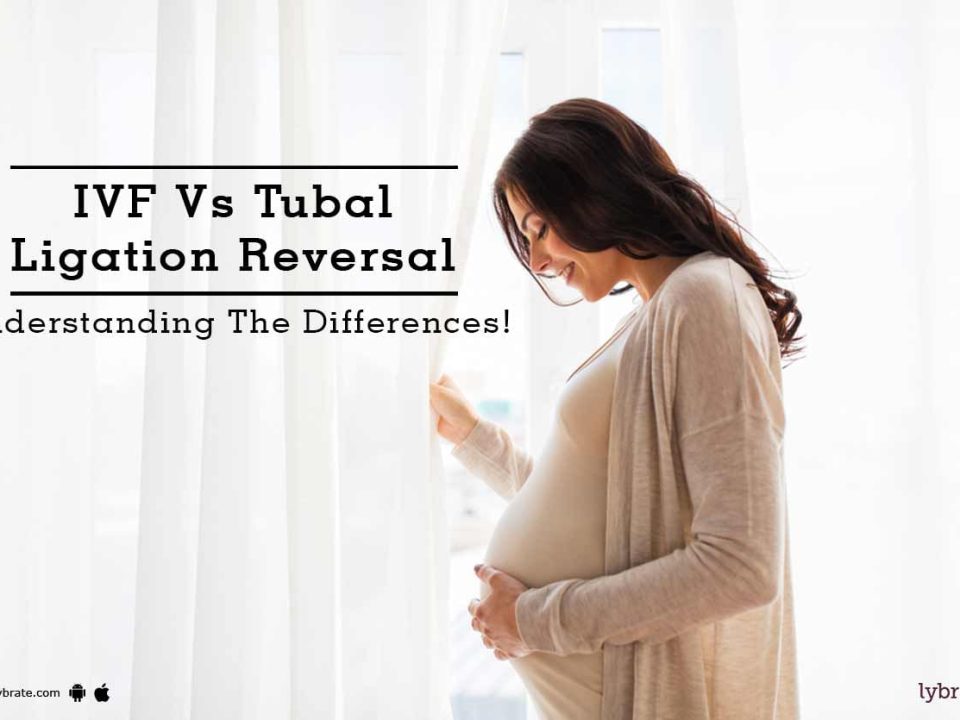Does IVF Freeze Eggs or Embryos? Your Guide to Understanding Fertility Options
When you’re exploring fertility treatments like in vitro fertilization (IVF), questions start swirling around in your head. One of the big ones is: Does IVF freeze eggs or embryos? It’s a great question, and the answer isn’t as simple as picking one or the other—it’s both, depending on your situation! IVF is an incredible tool that helps people build families, but it’s also a process packed with choices. Freezing eggs, freezing embryos, or even doing neither are all part of the journey. Let’s dive into what this all means, how it works, and what might be the best fit for you.
IVF can feel overwhelming at first, but breaking it down step-by-step makes it a lot less intimidating. Whether you’re just curious, planning for the future, or in the middle of treatment, this guide will walk you through the details with a friendly vibe. We’ll cover the science, the real-life decisions, and even some fresh insights you won’t find everywhere else. Ready? Let’s get started.
What Happens in IVF? The Basics You Need to Know
IVF is like a carefully choreographed dance between science and hope. It’s a process where doctors help create a baby outside the body, then place it back where it can grow. Here’s how it usually goes:
- Step 1: Boosting Egg Production
Your ovaries normally release one egg a month, but in IVF, you take special medicines to grow several eggs at once. More eggs mean more chances for success. - Step 2: Collecting the Eggs
Once the eggs are ready, a doctor uses a tiny needle guided by ultrasound to gently remove them from your ovaries. Don’t worry—you’re under sedation, so it’s not as scary as it sounds! - Step 3: Fertilization
In a lab, those eggs meet sperm (from a partner or donor). If all goes well, some eggs turn into embryos—tiny bundles of cells that could become a baby. - Step 4: Transfer or Freeze
Here’s where the freezing question comes in. The embryos can either be placed into your uterus right away (a “fresh transfer”) or frozen for later. Sometimes, eggs are frozen before fertilization instead.
So, does IVF freeze eggs or embryos? It depends on what you and your doctor decide. Both are options, and both have their own perks. Let’s explore them one at a time.
Freezing Eggs: Preserving Your Future
Imagine putting your fertility on pause—like hitting the “save” button in a video game. That’s what freezing eggs (also called oocyte cryopreservation) is all about. In IVF, eggs can be collected and frozen before they’re fertilized. Why would someone choose this?
Why Freeze Eggs?
- Timing Isn’t Right
Maybe you’re not ready for kids yet—career, school, or just life in general might be taking the lead. Freezing eggs lets you save them for when you’re ready. - Medical Reasons
If you’re facing treatments like chemotherapy that could harm your fertility, freezing eggs can protect your chances of having a baby later. - Flexibility
Single? Unsure about your partner? Freezing eggs keeps your options open. You can fertilize them with sperm later, whenever the time feels right.
How It Works
After the egg retrieval step in IVF, the eggs are flash-frozen using a technique called vitrification. This super-fast freezing stops ice crystals from forming, keeping the eggs safe. They’re stored in tanks of liquid nitrogen at crazy-cold temperatures (think -321°F!). When you’re ready, they’re thawed and fertilized to create embryos.
The Numbers Tell a Story
A 2022 study from NYU Langone Fertility Center found that women who froze eggs before age 38 and thawed 20 or more had a 70% chance of a live birth. That’s huge! Success drops as you get older, though—eggs from someone over 40 don’t fare as well. Age matters, but freezing early can stack the odds in your favor.
Pros and Cons
✔️ Pros:
- Total control over when to use them.
- No need to decide on sperm right away.
- Great for preserving fertility before medical treatments.
❌ Cons:
- Not every egg survives thawing (about 75-90% do).
- You’ll need IVF later to use them, which adds cost and time.
- Fewer eggs might mean lower chances of success.
Freezing eggs is like planting a seed for the future—it’s not a guarantee, but it’s a solid backup plan.
Freezing Embryos: A Step Further
Now, let’s talk embryos. An embryo is an egg that’s already been fertilized by sperm. In IVF, after eggs are collected and fertilized, you can freeze the resulting embryos instead of transferring them right away. This is super common, and here’s why it’s a game-changer.
Why Freeze Embryos?
- Extra Chances
IVF often creates more embryos than you need for one transfer. Freezing the extras means you’ve got backups if the first try doesn’t work—or for a sibling later. - Better Timing
Sometimes your body needs a break after egg retrieval, or hormone levels aren’t ideal for a fresh transfer. Freezing embryos lets you wait for the perfect moment. - Genetic Testing
Want to check for genetic issues? Freezing embryos gives doctors time to test them, so you can transfer the healthiest ones.
How It Works
Embryos are frozen at the blastocyst stage (about 5-6 days after fertilization) using vitrification, just like eggs. They’re stored in those same chilly tanks until you’re ready. When the time comes, they’re thawed and transferred into your uterus.
What the Science Says
Over 95% of frozen embryos survive thawing, according to Johns Hopkins Medicine. Pregnancy rates with frozen embryos are often as good as—or better than—fresh transfers. A 2017 Stanford study even showed that women with high progesterone levels had a 73% higher success rate with frozen embryos compared to fresh ones if they were over 35. Timing can make a big difference!
Pros and Cons
✔️ Pros:
- Higher survival rate than eggs.
- You know how many embryos you’ve got upfront.
- Ideal for genetic screening or multiple attempts.
❌ Cons:
- You need to pick sperm now (partner or donor).
- Legal or ethical questions if you split with a partner.
- Storage fees add up over time.
Freezing embryos is like having a ready-to-go plan—it’s a little more locked in, but it’s a strong option for many.
Eggs vs. Embryos: What’s the Difference?
So, eggs or embryos—which should you freeze? It’s not a one-size-fits-all answer. Let’s break it down with a side-by-side look:
| Factor | Freezing Eggs | Freezing Embryos |
|---|---|---|
| What’s Frozen | Unfertilized eggs | Fertilized eggs (embryos) |
| When to Decide on Sperm | Later—total flexibility | Now—sperm is already involved |
| Survival Rate | 75-90% survive thawing | Over 95% survive thawing |
| Success Rate | Depends on egg quality and age | Often higher, especially with testing |
| Best For | Single people, medical needs | Couples, multiple tries, genetic screening |
A Real-Life Example
Meet Sarah, a 32-year-old teacher. She’s single and wants kids someday, but not now. She freezes her eggs during an IVF cycle, giving her freedom to wait. Contrast that with Mia and Jake, a couple in their late 30s. They freeze embryos after IVF, knowing they want a second child later. Both made smart choices for their lives—it’s all about what fits.
The Hidden Factors No One Talks About
Most articles stop at the basics, but there’s more to this story. Here are three things you won’t find everywhere else—and they could change how you think about freezing eggs or embryos.
1. The Emotional Rollercoaster
Freezing eggs or embryos isn’t just a physical process—it’s an emotional one. For eggs, there’s relief in keeping options open, but also pressure to “use them” someday. With embryos, some feel a deeper connection since they’re potential babies, which can make decisions about storage or donation tougher. A 2023 survey by Fertility Network found 68% of women felt anxious about their frozen eggs or embryos after five years—something to prepare for mentally.
2. The Cost You Don’t See
Everyone talks about the upfront price (around $10,000-$15,000 for an IVF cycle), but what about storage? Eggs and embryos cost $500-$1,000 a year to keep frozen. Over 10 years, that’s $5,000-$10,000 extra! Plus, thawing eggs means another IVF round later, adding $5,000-$10,000 more. Plan ahead—small savings now (like cutting a coffee habit) could cover years of storage.
3. The “What If” of Technology
Vitrification is amazing, but it’s not perfect. What if freezing tech gets even better in a decade? Some clinics are testing new methods, like laser-assisted thawing, that could boost survival rates by 5-10%. Freezing now locks you into today’s tech—something to weigh if you’re thinking long-term.
Interactive Quiz: What’s Your Fertility Fit?
Not sure which option sounds right? Take this quick quiz to get a feel for it! Answer yes or no, and tally your points (Yes = 1, No = 0):
- Are you single or unsure about your current partner?
- Do you want kids in 5+ years, not sooner?
- Are you facing a medical treatment that might affect fertility?
- Do you want to know how many viable embryos you have now?
- Are you okay deciding on sperm today?
Score:
- 0-2: Freezing embryos might suit you—especially if you’re ready to commit now.
- 3-5: Freezing eggs could be your vibe—flexibility is key for you.
This isn’t medical advice, just a fun way to spark some thoughts!
How to Choose: Practical Tips for Your Journey
Deciding between eggs and embryos can feel big, but you don’t have to figure it out alone. Here’s a step-by-step guide to help:
Step 1: Talk to Your Doctor
Your age, health, and goals matter. A fertility specialist can test your ovarian reserve (how many eggs you’ve got left) and give you a personalized rundown. Ask: “What’s my success rate with eggs vs. embryos at my age?”
Step 2: Think About Your Life
- Single? Eggs give you freedom.
- Partnered? Embryos might streamline things.
- Medical urgency? Either could work—speed is key.
Step 3: Crunch the Numbers
Get quotes for retrieval, freezing, storage, and future IVF. Some clinics offer payment plans—worth asking about!
Step 4: Plan for the “What Ifs”
What happens if you don’t use them? Donation, research, or letting them go are options. Talk it over with a counselor or loved one to feel at peace.
Bonus Tip: Freeze Both?
Some people split the difference—freeze some eggs, fertilize others into embryos. It’s pricier, but it covers all bases. A 2022 NYU study showed 10% of patients did this combo for extra security.
The Latest Buzz: What’s New in 2025
Fertility tech is always evolving, and 2025 is no exception. Here’s what’s trending based on recent chatter and research:
- Egg Freezing on the Rise
Posts on X show more women in their 20s freezing eggs “just in case.” Google Trends backs this up—searches for “egg freezing age 25” spiked 15% this year. - Embryo Screening Gets Smarter
AI is helping doctors pick the best embryos faster. A Columbia University study from 2022 hinted at this, and clinics are rolling it out now—success rates could climb 5-8%. - Cost Concerns
X users are buzzing about affordability, with some states pushing for insurance to cover more IVF costs. Keep an eye on local laws—it could save you thousands.
Your Questions, Answered
Got lingering thoughts? Here are some common ones with straight-up answers:
Can Frozen Eggs or Embryos Expire?
Nope! As long as they’re stored properly, they can last decades. The UK recently upped storage limits to 55 years—plenty of time to decide.
Does Freezing Hurt the Baby Later?
Studies say no. Babies from frozen eggs or embryos have the same health odds as naturally conceived kids—no extra risks for defects or issues.
What If I Change My Mind?
You can donate eggs/embryos to others, give them to science, or let them thaw naturally. It’s your call, and clinics will guide you through it.
Poll: What’s Your Take?
Let’s hear from you! Pick one and share in the comments:
- A) I’d freeze eggs for flexibility.
- B) I’d freeze embryos for a head start.
- C) I’m not sure yet—still thinking!
Your vote keeps this convo going—plus, it’s fun to see where everyone lands!
Wrapping It Up: Your Path, Your Power
IVF doesn’t just freeze eggs or embryos—it freezes possibilities. Whether you’re saving unfertilized eggs for a future you can’t yet see or banking embryos for a family you’re ready to grow, you’re taking charge. It’s not about one being “better”—it’s about what fits your life, your dreams, and your timeline.
Think of it like choosing between a blank notebook and a half-written story. Eggs are the notebook—full of potential, waiting for your pen. Embryos are the story—already started, ready to finish when you are. Both can lead to something beautiful.
So, chat with your doctor, weigh your options, and trust your gut. You’ve got this—and whatever you choose, it’s a step toward the future you want. What’s your next move?





